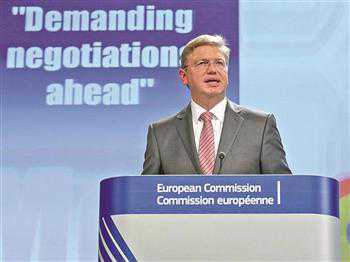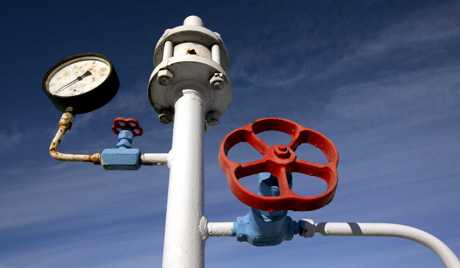Turkey must accept the euro as its national currency if it joins the European Union, European Commissioner Stefan Füle says. PM Erdoğan said in October Turkey might establish a lira zone

A secene from European Commissioner for Enlargement and European Neighbourhood Policy Stefan Fule’s speaking during a news conference in Brussels last year. Füle says Turkey will adopt the euro as its national currency after joining the European Union. EPA photo
A secene from European Commissioner for Enlargement and European Neighbourhood Policy Stefan Fule’s speaking during a news conference in Brussels last year. Füle says Turkey will adopt the euro as its national currency after joining the European Union. EPA photo
Turkey will adopt the euro as its national currency if it becomes a member of the European Union after fulfilling the required conditions, European Commissioner Stefan Füle said Feb. 11.
Füle’s comments came in the wake of a written question from EU Parliament member Mario Borgezio following Turkish Prime Minister Recep Tayyip Erdoğan’s recent statement that Turkey planned to create a Turkish Lira-based monetary zone instead of accepting the euro as a national currency after joining the European Union.
Füle, the European commissioner for Enlargement and European Neighborhood Policy, noted in his answer Turkey’s obligation to accept the euro as part of the negotiations framework.
“After the EU Council approves the membership of Turkey [subject to its fulfilling the required conditions], Turkey will join the economic and monetary union and adopt the euro as its national currency,” he said.
British example
Füle also said the EU Council had never invited Turkey to present its own position in terms of economy and monetary policy negotiations – a chapter that has not yet been opened.
Erdoğan said some EU members had advised Turkey to stay out of the eurozone and establish a “Turkish Lira zone” instead amid the continuing accession talks.
“Securing political stability in Europe is critically important to maintain the confidence of European societies in the union and the euro,” Erdoğan said in October in Germany.
“I know that there are some EU member countries which say, ‘I am against the euro, I do not want to take part in the eurozone.’ For instance Britain… It is quite satisfied. They even say ‘You should stay away from the eurozone, you can establish a Turkish Lira zone.’ And I said I think the same way, too. The EU should check up on itself regarding the monetary system,” he said.
February/13/2013
via ECONOMICS – Turkey must adopt euro if accepted as EU member.



